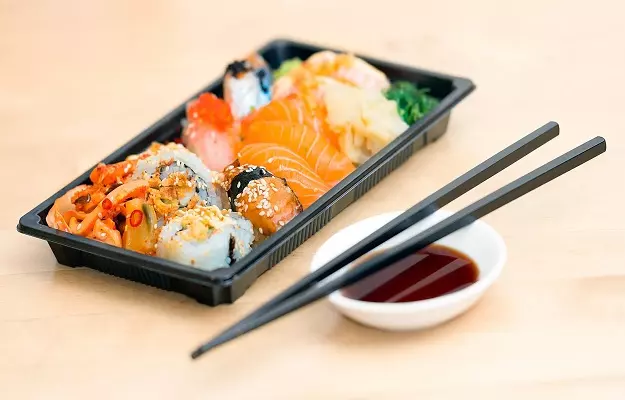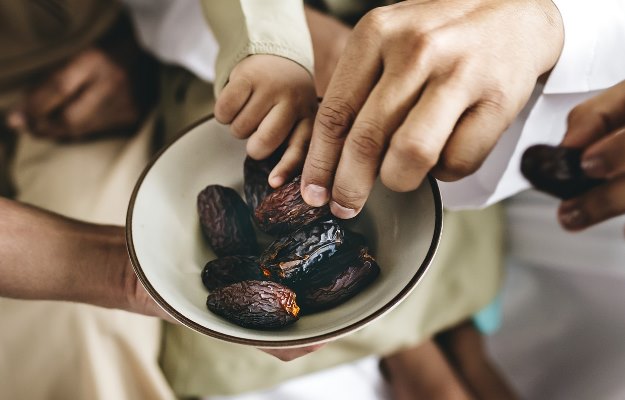A healthy diet plays a vital role during pregnancy. This is because the mother needs ample nutrition to boost her immune system and strength during gestation, and the baby growing in her uterus draws sustenance from her. Including fish in this diet as a source of protein, omega-3 fatty acids and vitamin D is usually recommended.
However, if you are worried about having fish during pregnancy - because you have heard that it negatively impacts the health of both mother and child - here’s what you need to know. Pregnant women are sometimes advised to not eat fish during pregnancy for the fear of mercury poisoning, salmonella contamination and allergic reactions.
It’s important to understand that while all fish have trace amounts of mercury, there are some that have a very high mercury content. While avoiding these fish is a good idea, you might want to continue eating the others during pregnancy.
Raw and undercooked fish should also be avoided by pregnant women to keep salmonella contamination and listeriosis at bay. However, women who are generally allergic to fish, especially shellfish varieties like crab and lobster, should not have it during pregnancy either.
- Benefits of eating fish during pregnancy
- Types of fish to avoid during pregnancy
- Avoid raw fish during pregnancy
- Can you eat shellfish during pregnancy?
- Takeaway
Benefits of eating fish during pregnancy
All types of fish are rich in iodine, omega-3 fatty acids, vitamin A, vitamin D and vitamin B12. It is also a rich and healthy source of protein. These nutrients play a very important role in the development of the fetus, and help maintain the immune system of the mother as well. Your baby can gain the following benefits from fish if you consume it during pregnancy and while you are breastfeeding:
- Eating fish helps the neurodevelopment or brain development of the baby
- The omega-3 fatty acids in fish can improve the baby’s eyesight
- Eating fish can help ensure your baby has a normal birth weight
- Consuming fish during pregnancy can also reduce the risk of miscarriage and premature birth
If you do choose to eat fish during pregnancy, eat 2-3 portions of well-cooked fish in a week. The following choices are considered to be safe:
- Basa
- Catfish
- Clam
- Cod
- Crab
- Mackerel
- Pollock
- Rohu
- Sardine
- Salmon
- Shrimp and prawns
- Snapper
- Sole
- Tilapia
- Trout
- Tuna (canned)
Types of fish to avoid during pregnancy
High levels of mercury in some varieties of fish can be dangerous for the baby’s development. Eating these fish varieties can cause mercury poisoning, which in turn can cause nervous system damage, brain damage and loss of hearing in the fetus or a baby who is being breastfed. The following varieties of fish have high levels of mercury and should be completely avoided by pregnant women:
- Shark
- Swordfish
- Marlin
Avoid raw fish during pregnancy
Indulging in dishes like sushi, sashimi and seared tuna is not a good idea during pregnancy because these increase the risk of two types of infections. Eating raw fish can cause salmonella poisoning and eating undercooked fish can cause listeriosis.
Salmonella infection causes diarrhea, stomach ache, nausea and vomiting; however, this infection doesn’t affect the fetus even though it can cause discomfort to the mother. Listeriosis, however, can cause miscarriage, stillbirth, uterine infections and premature delivery. To avoid any complications, it’s best to avoid raw or undercooked fish and meat during pregnancy.
Can you eat shellfish during pregnancy?
It is generally considered safe to eat shellfish during pregnancy if it is cooked properly. Bacteria and viruses present in food usually get destroyed during the cooking process. What’s more, if the shellfish is bought from government-approved stores and brands, or from trusted sources, they shouldn’t cause any issues.
However, raw shellfish should be completely avoided at all costs during pregnancy. Also, if you have an allergy to shellfish, it’s best to avoid the following popular types of shellfish when you are pregnant:
- Oysters
- Mussels
- Scallops
- Clams
- Prawns
- Shrimp
- Crab
- Crayfish
- Lobster
Takeaway
Eating fish when you are pregnant is safe, especially if you have 2-3 portions of well-cooked fish in a week. Make sure the fish is sourced from trusted markets and approved by the government for consumption.
It’s best to avoid fish which are high in mercury, are undercooked or raw. These can cause mercury poisoning, salmonella infection and listeriosis - which in turn can affect the health of the mother and the baby.
Eating shellfish is also good during pregnancy, unless you have a shellfish allergy or if it is raw or undercooked. It’s best to eat fish prepared at home during pregnancy, because in such a case you can control the type of fish, source and the method of cooking to ensure the safety of your unborn child.
Find Nutritionist in cities
References
- American Pregnancy Association [Internet]. Irving, Texas, USA; Mercury Levels in Fish
- US Food and Drug Administration (FDA) [internet]; Advice about Eating Fish
- HealthyChildren.org [internet] American Academy of Pediatrics. Illinois, United States; Fish & Pregnancy: What is Safe to Eat?.
- National Health Service [Internet]. UK; Should pregnant and breastfeeding women avoid some types of fish?
- National Health Service [Internet]. UK; Can I eat shellfish during pregnancy?

































